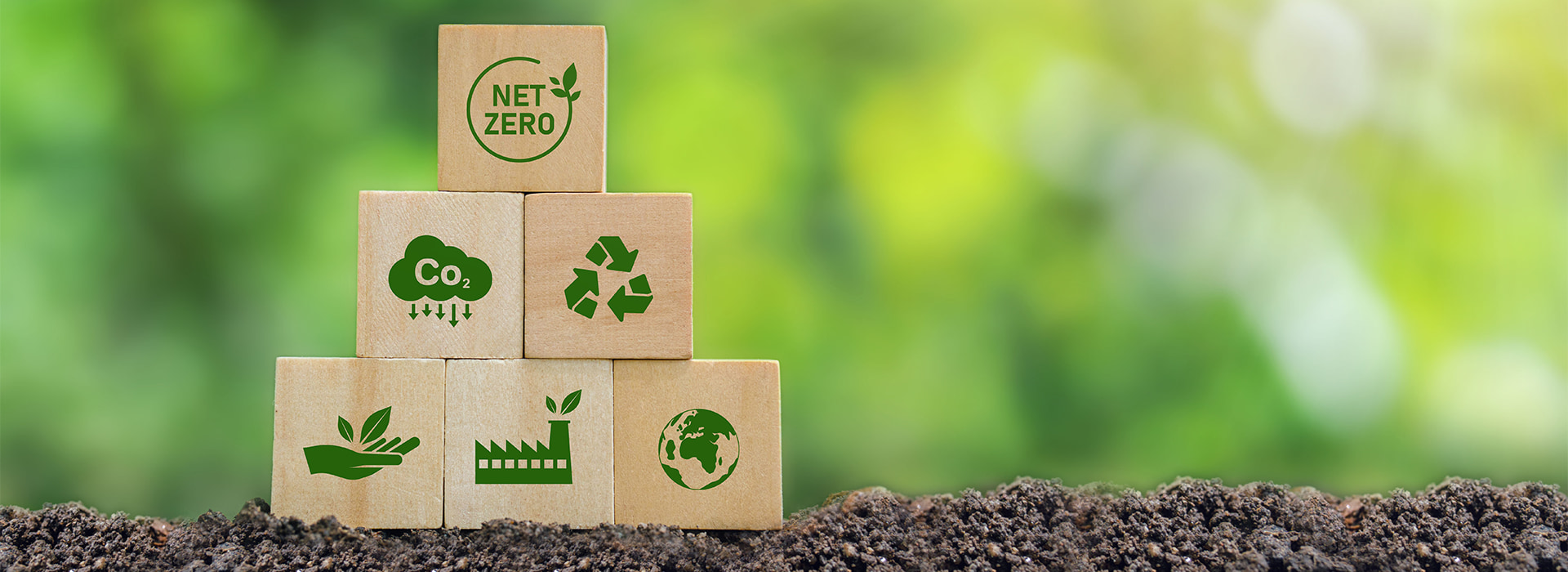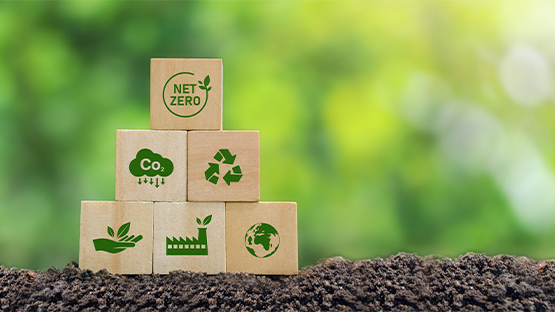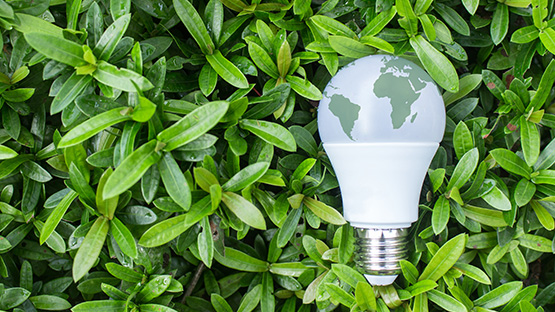Recycling of photovoltaic panels - how is it done and who is responsible for it?
Ecology

29 January 2023
The recycling of photovoltaic panels is still a niche, yet increasingly necessary activity. After all, the solar installations used today will not last forever. Fortunately, there are already regulations governing the re-use of cells and companies that deal with this. What is the recycling of photovoltaic panels and is it profitable? This knowledge is worth having.
Recycling photovoltaic panels - what does it involve?
Concern for the environment has resulted in a number of inventions using renewable energy. One of the best known is photovoltaic panels. These devices, although in themselves as environmentally friendly as possible, do not last forever. Just like any other equipment, they wear out, which manifests itself in a slow decline in their efficiency. The average lifetime of a PV panel is 20-30 years.
Photovoltaics therefore needed solutions that would allow the panels to be reused. As a result, simple yet effective ways of recycling have been developed. Importantly, the technology to recycle photovoltaic panels does not require their users to spend much.
Recycling of used PV panels is possible, among other reasons, because of the simple construction of such devices. The basic raw material of PV panels is glass. It accounts for approximately ¾ of the panel weight. The cell that generates energy from the sun's rays is only less than 4% of the weight of the equipment. The rest of the weight is made up of the aluminium frame and the sealing foil.
Processing methods for photovoltaic panels
How photovoltaic cells are recycled is influenced by the type of material used. For thicker silicon (crystalline) panels, the first step is to remove the aluminium frames. The wires are then removed. This is enough to get the core of the device into the grinding machine. In the next steps, the individual materials such as silicon, copper and plastic are separated.
Recycling of photovoltaic modules can also take place using high temperatures. At 500°C, plastic and silicon cells are separated from the metal parts and glass. In this way, all glass and synthetic material and the vast majority of silicon can be recovered. The parts that are still able to generate electricity are used to make new cells.
It is also possible to recycle thin-film panels. The process involves placing the PV panel in a shredder. It is then cut into small fragments of up to 5 mm in length. In this way, two operations are carried out simultaneously. Under pressure, the glass casing of the cell breaks, allowing it to be easily separated from the remaining raw materials. Such waste is easier to separate. The photovoltaic recycling machine thus facilitates the reprocessing of the resulting products.
Raw material recovery from recycling thicker silicon panels is 95%. For thin-film panels, the figure is 90%. This impressive result is made possible by aluminium. This metal can be reused in its entirety. Slightly less can be recycled from cullet, silicon, plastic and other materials. 
Where can I donate used photovoltaic panels?
Photovoltaic recycling is so far a rather niche business. Nevertheless, PV panel recycling companies are emerging on every continent. The largest number of companies with such a profile operate in China and the United States. These two countries are currently the largest markets for PV panels.
Surprisingly of late, the disposal of these devices has been addressed in Europe. The first plant was only established in 2018 in the French town of Rousset. The recycling plant there belongs to Veolia, which operates in the waste, energy and water sectors. PV Cycle was involved in this initiative. This is a non-profit association dedicated to creating cost-effective recycling solutions for businesses.
The business of recycling photovoltaic panels is also growing in Poland. This type of business is conducted, among others, by Thornmann Recycling from Toruń. Warsaw-based 2loop Tech also collects old panels. This company is running a joint project with the AGH University of Science and Technology in Krakow. The aim of the research is to recover as much raw material as possible from used PV panels.
Unfortunately, there are not many similar enterprises. It remains to be hoped that the developing photovoltaic market on the Vistula will contribute to better management of used equipment. This will become increasingly necessary as the years go by, as Poland is currently the fourth largest market for PV panels in the European Union.
Why is the disposal of photovoltaic panels so important?
The share of renewables in the energy sector is steadily increasing. It is no different with the generation of electricity from sunlight. Already by the end of 2020, all photovoltaic panels yielded almost 800 GW of electricity. This trend is also visible in Poland. As a result, the total weight of panels installed here will reach 420,000 tonnes in 2025. Worldwide, this will amount to billions of tonnes.
Recycling PV panels will therefore become necessary over the years. Although the structures themselves do not contain environmentally harmful substances, they will take up space in landfills. This is because they are made of materials that biodegrade very slowly. Nevertheless, they are worth using. The implementation of ecological solutions is very important. InPost, among others, is aware of this, as it is already betting on green energy by delivering parcels using electric cars.
Legal issues related to the recycling of photovoltaic panels
One of the most important documents that defines photovoltaic panels is the Waste Electrical and Electronic Equipment Directive (WEEE). This document was created at the initiative of the European Union. Key in it is precisely the definition that devices that produce electricity from the sun are electronic equipment.
By defining photovoltaic panels as consumer electronics, EU legislators have been able to impose the same obligation on their manufacturers as they do, for example, on companies developing smartphones or televisions. In other words, panel manufacturers were obliged to make their panels from 85% recyclable materials. What is more, a minimum of 80% of these is to be used by the PV manufacturer in the production of subsequent panels.
EU regulations also apply in Poland. However, this does not mean that Community Member States cannot introduce additional regulations. Interestingly, the Polish code is more restrictive than the European one. According to the law, the manufacturer of photovoltaic panels is obliged to deal with their management from the moment they become waste. The user should be able to return used equipment and the manufacturer should take care of recycling.
For the time being, Polish regulations on PV recycling remain mainly theory. This is by no means due to the ineffectiveness of their enforcement. There is simply not (and will not be for a long time to come) much of this type of waste at present. Growing demand will probably only contribute to more PV panel recovery companies. 
Recycling photovoltaic panels - how much does it cost?
The cost of recycling photovoltaic panels depends on the weight of the individual modules. In most cases, the owner of a solar installation will not be able to take the used equipment for disposal. For this reason, the mileage rate for transport must be added to the expense.
The average recycling price of photovoltaic panels is £1.5 per kilogram. The weight of a single module is 19 kg on average. When these values are taken into account, the transfer of a PV panel costs 28.5 PLN. Thus, the disposal of a small 10 kW solar installation will amount to 285 PLN. The remainder of the cost is transport at a cost of approximately PLN 2.5 per kilometre. Assuming that the house and the recycling point are 100 km apart, PLN 250 must be added to the amount of the service. In this case, the total expense is therefore PLN 535.
Recycling photovoltaic panels - is it worthwhile?
The prices of photovoltaic panels vary depending on the technology they are made with. Amorphous modules are the cheapest. The price per unit is around 100 PLN, depending on the maximum power achieved. This is on average 5 W. PV panels of this type are used as part of an electrical installation to power individual appliances. In this case, the recycling costs can therefore be high in relation to the price of a new panel.
To power entire buildings, much more efficient, yet much more expensive PV panels are installed. Monocrystalline and polycrystalline panels cost on average between £500 and £1,500 per unit. The price depends on the maximum module power generated, e.g. 250 W or 320 W.
Using this example, it can be seen that recycling photovoltaic panels is very cost-effective for the consumer. The cost of a single module is less than 10% of the total disposal price. When purchasing the most expensive cell models, this expense is even negligible.
By the middle of the 21st century, the weight of used solar installations will be at least 60 million tonnes. The recycling of photovoltaic panels can therefore undoubtedly be called the business of the future. From the users' perspective, it will be an expression of care for the environment. It is also possible that it will become an obligation, just as it is today for photovoltaic manufacturers. It is to be hoped that it will remain profitable and that the number of companies involved in this type of recycling will increase significantly in the coming decades.
Czytaj również






